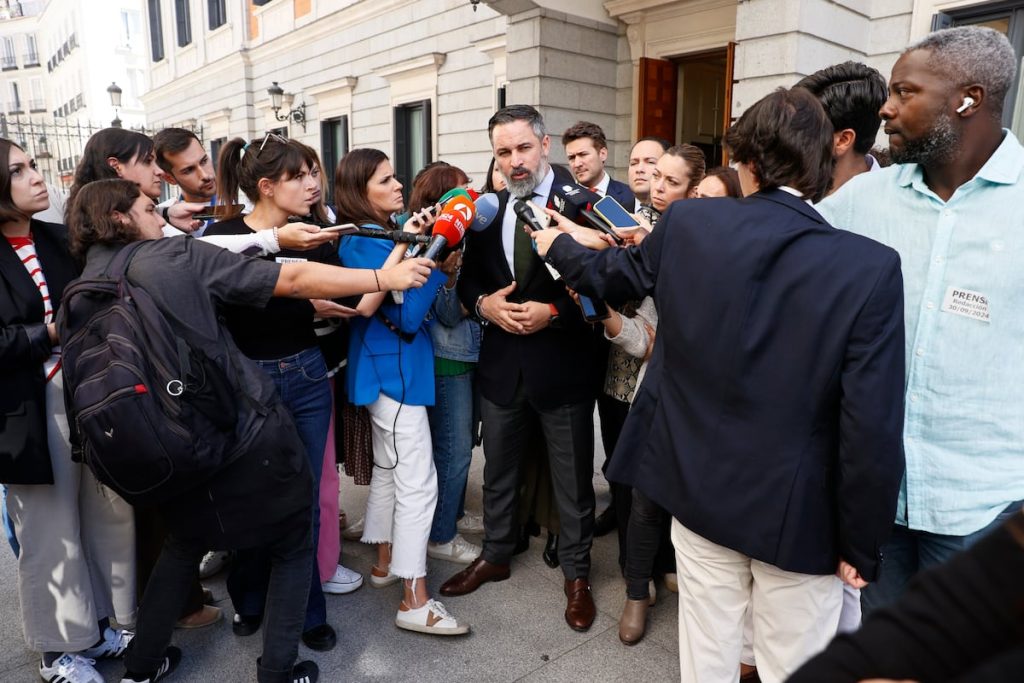Vox admitted on Monday that it financed its electoral campaign for last year’s municipal and general elections with two loans totaling 9.2 million euros from a Hungarian bank close to Prime Minister Viktor Orbán, as reported by EL PAÍS on September 16. The spokesperson for the far-right group in Congress, Pepa Millán, justified the decision to request a loan from the Hungarian bank by citing the inability to secure financing in Spain and delays in receiving electoral subsidies from the Spanish government. Vox has acknowledged that Magyar Bankholding (MBH), a financial institution created from the merger of three banks and partially owned by Orbán’s childhood friend Lörinc Mészáros, was the bank that provided them with two loans totaling 9.2 million euros for the 2023 municipal and general elections campaigns.
Despite using loans from a bank close to Orbán for funding, Vox failed to disclose the identity and nationality of the lending institution in their financial reports, in violation of the Political Parties Financing Law. The law stipulates that political parties must disclose details of any outstanding loans, including the name of the lender, the amount, interest rate, and repayment terms, within a month of submitting their financial reports. By not revealing this information, Vox may have violated regulations aimed at preventing banks from providing hidden support to political parties.
Vox’s decision to join the Patriotic for Europe group led by Orbán, after leaving the Conservatives and Reformists European group, has raised concerns about the party’s alliances and funding sources. This move has elevated Orbán’s group to the third largest in the European Parliament, potentially undercutting the influence of other right-wing groups. The shift in alliances has also sparked questions about Vox’s ties to Orbán and the financial motivations behind their campaign funding, especially considering the lack of transparency in their loan disclosures.
When questioned about the lack of transparency regarding their loans, Vox’s spokesperson declined to provide further information, stating that the details were known to the relevant authorities. The party did not initially mention the difficulty of obtaining loans from Spanish banks, as they are now claiming. This shift in justification mirrors similar arguments made by Marine Le Pen to explain loans from Russian and Hungarian banks for her campaigns, raising questions about the extent of foreign influence on right-wing political parties in Europe.
The revelation of Vox’s financing arrangements with a Hungarian bank linked to Orbán highlights the complexity of political financing and the potential for foreign influence on domestic politics. By failing to disclose key details about their loans, Vox has drawn scrutiny for potential violations of financial transparency laws and raised concerns about the party’s relationships with foreign entities. As the investigation continues, questions remain about the extent of Orbán’s influence on Vox and the implications of their financial dealings for Spanish and European politics.


